READY TO GET STARTED?
REQUEST A FREE ESTIMATE
Fill out the form below or call (888) 466-7849 for a free, no-obligation estimate.
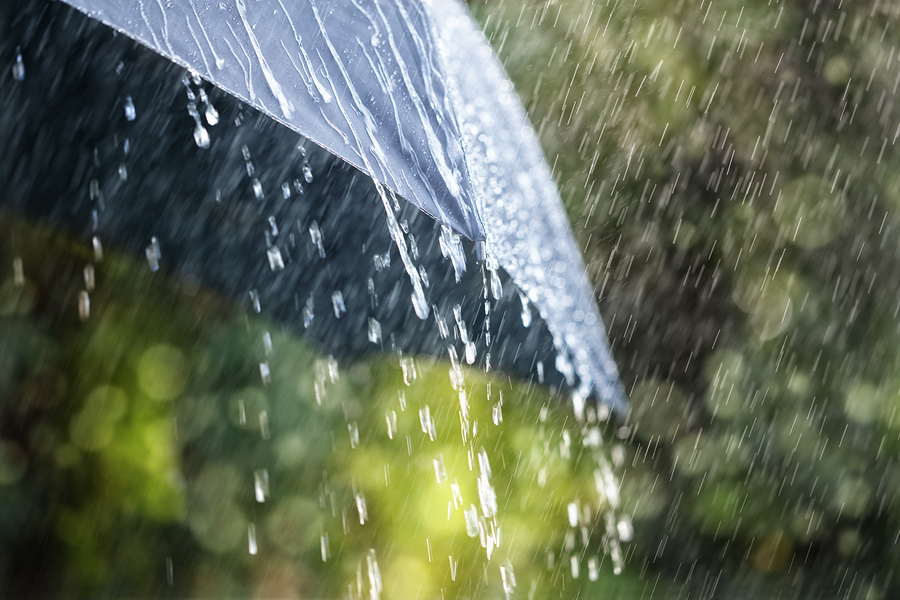
It’s raining, it’s pouring… the bugs are exploring!
You may notice an invasion of pests like ants, roaches, and spiders into your home after a rainy day. Why? In most cases, their shelter is compromised, forcing the bugs out of hiding in search of a drier refuge.
The best way to avoid this is with proactive pest control. Make your home less appealing to pests and restrict access by keeping shrubbery and trees trimmed and away from your home’s exterior, take out garbage daily, clean up spills, don’t leave pet food out, de-clutter, and seal off any entry points. You can also ask your local exterminator to apply preventative pest control products, usually in granular form, around your home’s perimeter. This helps to limit the number of pests in close proximity to your home and act as a barrier.
Another side effect of lots of rain: mosquitoes. Once the weather warms up, mosquitoes will be out in full-force. Help to reduce mosquito bites by eliminating sources of standing water that may have accumulated during heavy rainfall. You can also get rid of mosquitoes with monthly treatments during mosquito season targeting mosquito breeding and resting sites in your yard.

With every passing week, Zika becomes more dangerous and is spreading to new areas. Until now, Zika has been a threat mostly to pregnant women, their partners, or couples that are trying or planning to conceive due to the birth defect Microcephaly that Zika can cause. And while the virus does pose health risks much like other viruses – fever, rash, joint pain, headache – it appeared somewhat asymptomatic, other than recent reports that links Zika to the eye infection uveitis.
Now researchers are conducting experiments with findings that show an alarming relationship between Zika and serious long-term effects on the central nervous system of adults. The study, published Thursday in Cell Stem Cell, was performed on mice and found that Zika virus appears to cause cell death in neural stem cells and also hinders their ability to regenerate. The infected mice experienced a decrease in cell population in 2 areas of the brain that was twenty times more pronounced compared to other brain regions.
“Ours is the first study to look at Zika infection in the adult brain in an animal model. What we found was quite striking and dramatic. The stem cell population are highly vulnerable to Zika,” says Dr. Joseph Gleeson, lead author of the study. “In a sense, it’s the exception that proves the rule. It’s not so much the age of the person but the type of cells themselves that are vulnerable and not vulnerable.”
According to Gleeson, the study does come with limitations but clearly suggests that more research is needed and there are more questions to be answered.
For now, the best way to protect yourself and your family from Zika is with mosquito bite prevention. Use insect repellent with DEET when outdoors, keep your arms and legs covered in light-colored, loose clothing, keep doors and windows closed, and contact your local exterminator for mosquito control treatments around your home.

The first cases of locally transmitted Zika virus were reported this week in Florida. On July 29th, 4 people infected with Zika virus in Miami reportedly were bitten by mosquitoes within the city. On August 1st, that number grew from 4 to 14 infected. Until now, all reported cases of Zika in the United States have been linked to those who recently travelled to countries with known Zika transmissions.
Due to the recent developments, the Centers for Disease Control are warning pregnant women and their partners to avoid traveling to Miami and surrounding areas. Zika virus is extremely dangerous to unborn babies, potentially causing a condition known as Microcephaly, a birth defect characterized by abnormally small heads and underdeveloped brain function. Pregnant women and/or their partners that have recently travelled to the area (on or after June 15th) should be tested immediately for Zika virus and those living in and around Miami should exercise strict mosquito bite prevention and avoid unprotected sex.
As for the rest of the country, the risk of contracting Zika from mosquitoes isn’t an immediate threat since mosquitoes carrying Zika do not travel far (a mile or less in their lifetime). BUT, because symptoms of Zika often go unnoticed, those that have recently traveled to the area and may have Zika are likely to pass the virus on to sexual partners, OR could spread the virus to another mosquito if bitten. In turn, that mosquito could then transmit Zika to other people.
Because of its unpredictability, practicing mosquito bite prevention in any warm, humid climate (within the US and when traveling abroad) is key – especially for pregnant women and those planning to become pregnant. Use an insect repellent with DEET when outdoors, keep arms and legs covered with light-colored, loose clothing, stay away from areas with stagnant, standing water, and consider a home mosquito control program by an exterminating company.
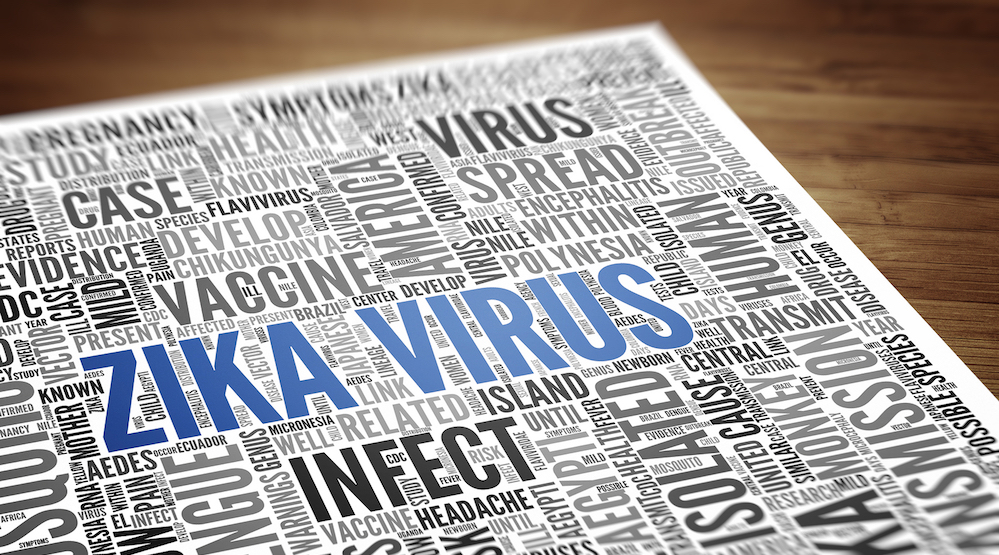
By now we know that Zika Virus, a mosquito-borne disease, carries some serious health threats and risks, previously thought to be most dangerous for pregnant mothers and their unborn babies. If bitten by the Aedes aegypti mosquito carrying Zika, an unborn baby could potentially be born with a serious birth defect called Microcephaly, causing abnormally small heads and impaired brain function.
Now Zika Virus is also being linked to and eye infection causing permanent blindness, reported by the New England Journal of Medicine last week. This Zika-induced eye infection, uveitis, can cause glaucoma, cataracts and loss of vision.
If you’ve recently traveled to countries with documented Zika transmission – like Brazil, parts of the Carribbean and Central America, Mexico, and the Pacific Islands – see an ophthalmologist. Potential signs and symptoms of an eye infection related to Zika Virus are eye redness, pain or sensitivity to light. If left untreated, uveitis can “cause irrevocable damage to the retina,” according to Dr. C. Stephen Foster, president of the Massachusetts Eye Research and Surgery Institution in Waltham.
Protect yourself from mosquito bites by using bug repellent with DEET and keeping your arms and legs covered with loose-fitting long sleeves and pants (find out more about mosquito bite prevention here). Pregnant women or women expecting to become pregnant should avoid traveling to these countries all together. The same applies to men that are trying to conceive with their partner; Zika Virus can be sexually transmitted from men to women.
Those planning to travel to Rio, Brazil for the upcoming 2016 Summer Olympics are especially at risk. At least 4-6 weeks prior to your trip, talk to your doctor about vaccinations and medicines recommended for travel to Brazil. It’s also a good idea to purchase travel health and medical evacuation insurance, according to the CDC, and stay up to date with travel warnings and breaking news in that area. While visiting Rio, mosquito bite prevention is key to reducing your risk of Zika and other mosquito-born diseases. Wear mosquito repellent with DEET around the clock, avoid areas of standing or stagnant water, and wear loose, light-colored clothing that covers arms and legs. And since Zika can be sexually-transmitted, avoid unprotected sex during travel and for at least 8 weeks after. The CDC recommends that pregnant women not go to the Olympics.
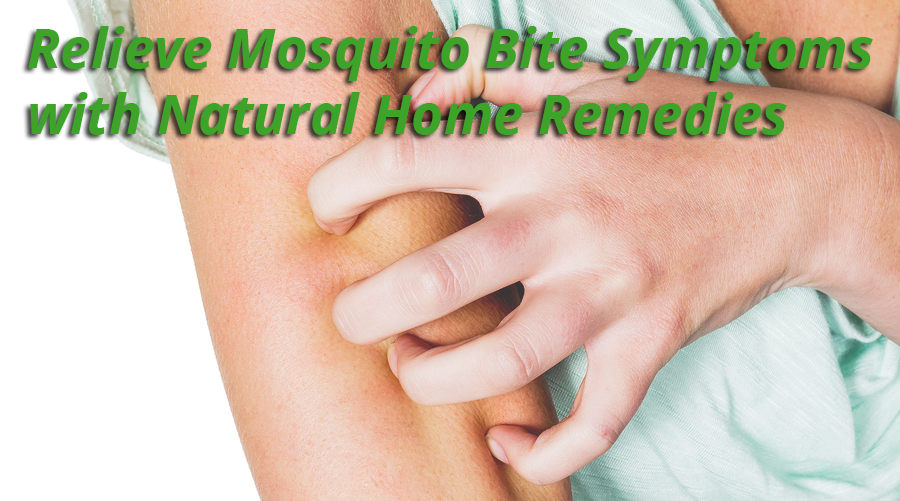
We all need food to survive, right? Unfortunately for us, mosquitoes live off of blood meals from people and animals, which is obtained by biting their victims. Ouch! And chances are, even if you practice strict mosquito prevention, you’ll still be bitten at some point during mosquito season in warm, humid climates. Here’s what you can do to minimize the itching, swelling, rashes, and diseases that mosquito bites often leave behind.
Aloe is a natural antiseptic that will minimize swelling, pain, and itching, and will also help the bite to heal faster. Chilled aloe vera works even better. Pop it into the fridge for awhile before applying for maximum results and relief.
Applying ice directly onto mosquito bites will reduce swelling, relieve pain, and make the bite less itchy. Leave it on for 10-15 minute increments at a time, using as often as needed.
Soak in an oatmeal-infused bath for several allergic reactions to mosquito bites. The oatmeal will soothe symptoms of the bites immediately.
Lemons have natural antiseptic and anti-inflamatory properties that will reduce symptoms of mosquito bites and minimize the risk of infection. Cut a lemon in half and rub it over the affected area.
Hold a damp green tea bag (preferably cold) onto the mosquito bites for immediate relief from itchiness, swelling, and redness.
Honey is a natural antiseptic. Apply a small amount directly onto mosquito bites to help prevent infection.
Cover the bites with a bandaid or even tape to keep yourself from scratching it, which will reduce chances of prolonged symptoms and infection.
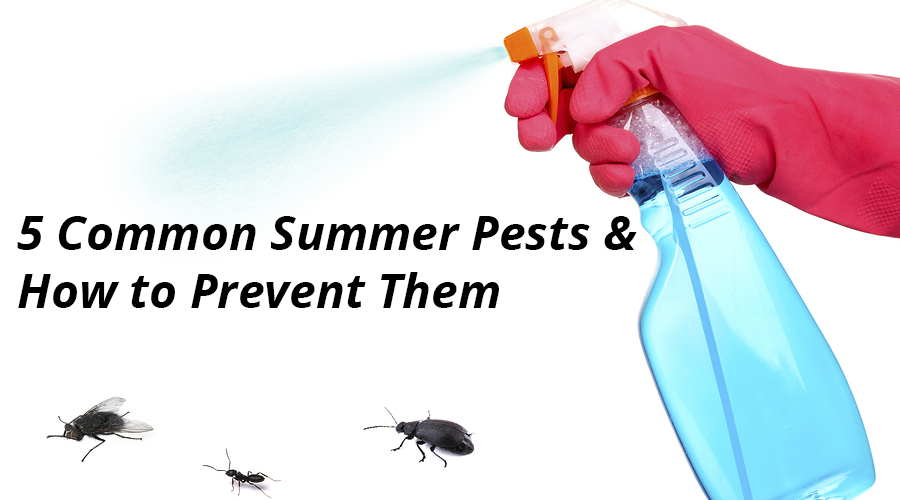
While pests in the house are a year-round nuisance here in the South, certain bugs are more active in warmer months. If you own or rent a home or apartment, you’re likely to come across one or all of these 5 summer pests. Here’s what you can do to prevent them.
Most of the ants you’ll find in your home won’t bite, but that’s not always the case. It’s best to eliminate any potential food sources and entry points to keep them out. You can do this by sealing cracks and crevices and by keeping a clean house. Take the trash out regularly, store food in sealed containers, and clean up spills immediately. Leaving pet food unattended can also attract ants and other pests, so keep the food in a sealed container when not being eaten by pets, and off of floors.
We’ve likely all been bitten at some point by mosquitoes. They’re active in warmer months and lay their eggs in standing water. In order to have the nutrients to lay these eggs, female mosquitoes need a food source – blood from humans and pets. If bitten, you may experience stinging or itching. In rare cases, mosquitoes will transmit diseases to their host. To prevent mosquitoes, eliminate any standing water around your home – debris, toys, bird baths, fountains, ponds, pet water bowls, etc. Wear mosquito repellent when outdoors, make sure pets are current on heartworm medication, and consider a professional mosquito control service from your local exterminating company.
As temperatures heat up, fleas come out to play by attaching themselves to a food source – usually your pets. Because flea allergies are common, the bites can be itchy and painful, and they transmit diseases, it’s important to keep your pets current on preventative flea medication. Give them baths regularly, keep pet beds clean, and vacuum often. If your pet gets infested with fleas, we recommend contacting a pest control professional. Fleas reproduce quickly and can be hard to get rid of.
Keeping flies out can be hard to do in the summer. Just like most other pests, they’re looking for food. Prevent flies from spreading bacteria throughout your home by keeping windows and doors closed, taking the trash out often and moving garbage cans away from the exterior of your home. Don’t leave food out and clean up dishes and spills immediately.
Roaches thrive in warm, humid temperatures. And because they eat almost anything, they can be hard to get rid of once inside your home. They’re most often seen in kitchens and bathrooms. Because they spread bacteria and often cause severe allergic reactions, it’s a good idea to contact an exterminator if you’re seeing roaches. Where there’s one roach, there’s probably a few hundred more hiding somewhere close. They reproduce quickly and are one of the most difficult pests to get rid of once your home is infested. To prevent roaches, keep a clean house, don’t bring in boxes or newspapers, and seal any cracks, holes or crevices.

While pests in the house are a year-round nuisance here in the South, certain bugs are more active in warmer months. If you own or rent a home or apartment, you’re likely to come across one or all of these 5 summer pests. Here’s what you can do to prevent them.
Most of the ants you’ll find in your home won’t bite, but that’s not always the case. It’s best to eliminate any potential food sources and entry points to keep them out. You can do this by sealing cracks and crevices and by keeping a clean house. Take the trash out regularly, store food in sealed containers, and clean up spills immediately. Leaving pet food unattended can also attract ants and other pests, so keep the food in a sealed container when not being eaten by pets, and off of floors.
We’ve likely all been bitten at some point by mosquitoes. They’re active in warmer months and lay their eggs in standing water. In order to have the nutrients to lay these eggs, female mosquitoes need a food source – blood from humans and pets. If bitten, you may experience stinging or itching. In rare cases, mosquitoes will transmit diseases to their host. To prevent mosquitoes, eliminate any standing water around your home – debris, toys, bird baths, fountains, ponds, pet water bowls, etc. Wear mosquito repellent when outdoors, make sure pets are current on heartworm medication, and consider a professional mosquito control service from your local exterminating company.
As temperatures heat up, fleas come out to play by attaching themselves to a food source – usually your pets. Because flea allergies are common, the bites can be itchy and painful, and they transmit diseases, it’s important to keep your pets current on preventative flea medication. Give them baths regularly, keep pet beds clean, and vacuum often. If your pet gets infested with fleas, we recommend contacting a pest control professional. Fleas reproduce quickly and can be hard to get rid of.
Keeping flies out can be hard to do in the summer. Just like most other pests, they’re looking for food. Prevent flies from spreading bacteria throughout your home by keeping windows and doors closed, taking the trash out often and moving garbage cans away from the exterior of your home. Don’t leave food out and clean up dishes and spills immediately.
Roaches thrive in warm, humid temperatures. And because they eat almost anything, they can be hard to get rid of once inside your home. They’re most often seen in kitchens and bathrooms. Because they spread bacteria and often cause severe allergic reactions, it’s a good idea to contact an exterminator if you’re seeing roaches. Where there’s one roach, there’s probably a few hundred more hiding somewhere close. They reproduce quickly and are one of the most difficult pests to get rid of once your home is infested. To prevent roaches, keep a clean house, don’t bring in boxes or newspapers, and seal any cracks, holes or crevices.
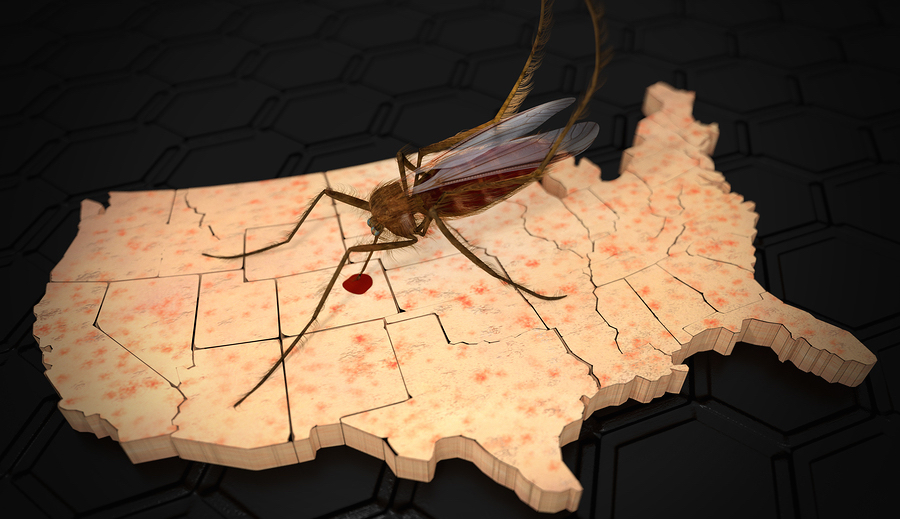
The Center for Disease Control and Prevention (CDC) is now warning everyone that Zika is scarier than they originally thought.
Over 300 cases of Zika virus have now been confirmed in the U.S. And while most of these occurrences are in people who had traveled to countries with Zika-infected mosquitos, now we know that the virus can be transmitted sexually in addition to a mosquito bite.
The biggest concern right now related to Zika is for pregnant women. Zika virus can cause a neurodevelopmental disorder in fetuses, Microcephaly, that causes babies to be born with a head and brain that are smaller than normal. Now research is showing that Zika not only affects women in their first trimester, but can be a risk throughout all stages of pregnancy, according to CDC Deputy Director, Dr. Anne Schuchat.
“Most of what we’ve learned is not reassuring,” she added. “Everything we know about this virus seems to be scarier than we initially thought.
The mosquitoes carrying Zika virus have been identified in 30 states across the country. This doesn’t mean the mosquitoes are infected, but health officials are concerned that as temperatures begin to rise, pregnant women from Texas to Florida will be at risk.
For women who are not pregnant, if you’ve experienced symptoms of Zika – fever, rash, itchy eyes – wait at least 8 weeks before trying to conceive. And even if you’ve had no symptoms at all but have recently traveled to any of the countries with active Zika transmissions, it’s advised to also wait 8 weeks or longer before trying to get pregnant.
On a positive note, the CDC has asked for federal funding to aid in the research and development of a cure, with a vaccine potentially expected to release in September 2016.
Meanwhile, reduce your risk of Zika and other mosquito-borne viruses with mosquito prevention tips and professional mosquito control.
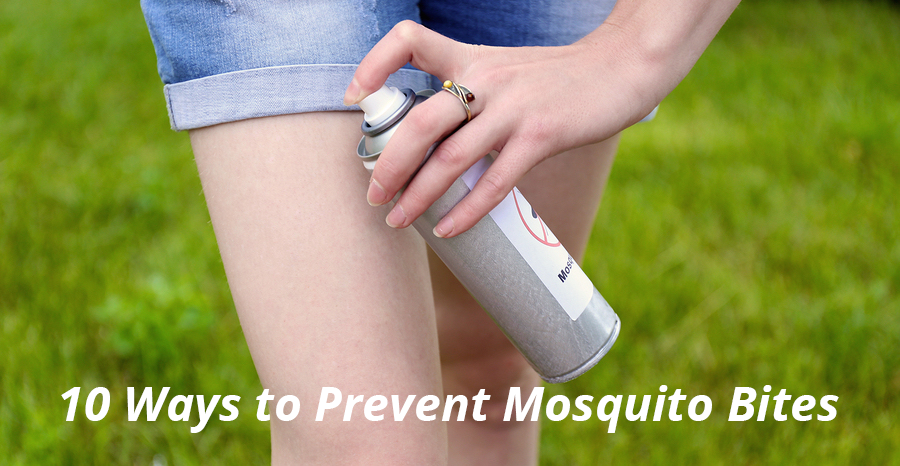
Mosquito season in the south is here! Yes, we know what you’re thinking…so soon? We usually get one pleasant month of spring before mosquitoes start biting. But with the unpredictable, on-again, off-again warm weather we’ve had all winter, it’s really no surprise that mosquitoes are active earlier this year. So what does this mean for you and your family? Painful mosquito bites, allergic reactions, higher risk of contracting mosquito-borne diseases, and less time you’ll be enjoying outdoors.
Here are 10 ways you can prevent mosquito bites:
Yes, it’s hot and no, you probably don’t want to wear long-sleeves and pants. But, covering your arms and legs when outside, during peak mosquito season, is one of the easiest and most effective ways to prevent mosquito bites.
Check for areas of standing water around your home frequently and remove the sources of standing water, if possible. Mosquitoes breed in stagnant water so the more standing water around on your property, the more mosquitoes you’ll encounter. Standing water is commonly found in bird baths, children’s toys, flower pots, rain gutters, buckets, and other containers.
The active ingredient DEET is proven to be effective at repelling mosquitoes and other biting insects and protecting against mosquito-borne diseases like Zika virus, West Nile, and Encephalitis. Use on exposed skin when outdoors and repeat, as needed, if you’re outside for several hours.
You may be tempted to leave windows and doors open to take advantage of spring weather. If so, make sure all windows and doors have screens without holes or tears, to prevent mosquitoes from coming inside your home.
Mosquitoes are most active between dusk and dawn. Avoid going outside during those times, if possible.
Because mosquitoes are attracted to the lactic acid in sweat, outdoor workouts should be limited during mosquito season, especially if you have sensitivity or an allergy to mosquito bites. And if you do choose to workout outdoors, wear mosquito repellent with DEET and long-sleeves and pants to reduce the risk of being bitten.
Outdoor fans, on decks, patios, and around pools, are a great way to keep the mosquitoes away. Mosquitoes are weak fliers, so a powerful fan is a great mosquito deterrent for smaller areas.
Mosquitoes tend to be more attracted to darker colors, so wearing lighter colors will reduce your chances of an attack.
Sounds ridiculous right? But apparently mosquitoes are beer lovers too. While the exact reason for the attraction is unknown, some believe it’s related to an elevated body temperature when drinking alcohol and the amount of ethanol excreted when sweating.
Avoiding high body temperatures can be impossible in the south’s summer heat and humidity. But, mosquitoes are attracted to elevated body temperatures, making you more likely to be bitten. Do what you can do stay out of the heat and keep your body cool.
Sometimes you can do everything possible to prevent mosquito bites and still get bitten. Consider calling a professional mosquito control company that specializes in mosquito prevention. An effective mosquito control program targets mosquito larvae (breeding sites) and adult mosquitoes (resting areas), with eco-friendly mosquito treatment options that are family and pet-friendly. A mosquito exterminator will also identify problem areas and provide recommendations for ongoing mosquito prevention.